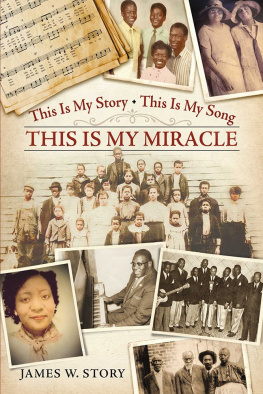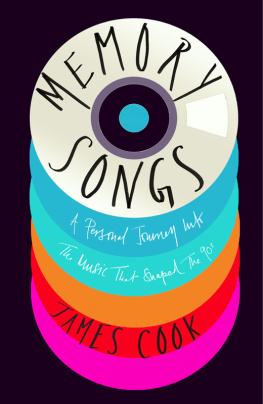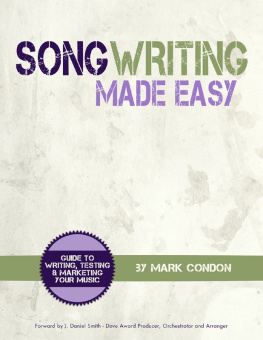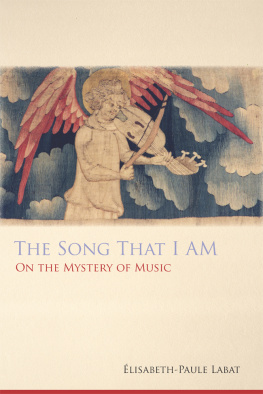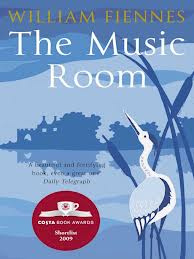Copyright 2021 by James W. Story.
All rights reserved. No part of this book may be reproduced, distributed, or transmitted without prior written permission from the publisher. For information or order inquiries, please contact: James W. Story at James.Story2010@gmail.com.
Printed in the United States of America.
All Scripture quotations, unless otherwise indicated, are taken from the Holy Bible, New International Version , NIV. Copyright1973, 1978, 1984, 2011 by Biblica, Inc. Used by permission of Zondervan. All rights reserved worldwide. www.zondervan.com . The NIV and New International Version are trademarks registered in the United States Patent and Trademark Office by Biblica, Inc.
All prayers, unless written by the author, are printed with the permission of Lisa Weathers Hall, who wrote prayers for each step of the authors battle with COVID-19.
Grateful acknowledgment is made to members of the authors family who lovingly shared their memories through conversations and family records.
Photographs courtesy of the Story family
Cover designed by Bruce Gore | Gore Studio
Edited by Judy H. Jones, with contributions by Rev. Norman Hall and Barbara Snell
Print ISBN: 978-1-66780-885-7
eBook ISBN: 978-1-66780-886-4
This book is dedicated to my mother, Naomi
Introduction
This is my story as a Black man; this is my song as a musician; this is my miracle as a COVID-19 survivor.
Perhaps fittingly, I was born on a Sunday, December 18, 1955, in Greeneville, Tennessee. I would like to think I was ushered into the world with the sounds of angelic melodies, sanctified handclaps, tambourines, and organs, but I doubt it was that pleasant. Nevertheless, the calm and foggy December air settled amongst the mountains to announce Seasons Greetings. The excitement and anticipation of Christmas embraced the town.
Life is slow in Greeneville. So much so, that time can often feel like an illusion. Nestled in the foothills of the Appalachian Mountains, the Nolichucky River winding nearby, my hometown is concealed by great hills and grand trees in all their glory. Only the train tracks serve as a reminder that there, indeed, is a world beyond our hills. If you were not looking for Greeneville, you might never find it.
I have taken up the quest of being the hand holding the pen and writing my storythat of a young boy from these mountains of East Tennessee dreaming of playing music. As I share my own story, I am eager to share stories of my ancestors and musical mentors who have had a hand in guiding my path to becoming a musician and an educator.
In Part I of this book, I pay homage to my family and particularly my ancestors who endured the degradation of being taken from their homeland, the danger of crossing an ocean on slave ships, and the humiliation of the auction block, and yet maintained their dignity. They overcame extreme hardships and created a life worth living in a foreign land by using their innate music and dance talents to work through hardship, overcome obstacles, celebrate victories, and create joy. They utilized their agricultural skills to support their families and communities and express thankfulness for the Earth and its bounty. They echoed dignity and community through their spirituality and their abilityperhaps against all oddsto sustain faith in God and gratitude for their existence.
I have always relished the stories passed down through generations of my family. As my elders shared their stories of hardships, I envisioned their lives filled with strife and pain but also with strength and even triumph. These elders told stories of learning to read and write in one-room schoolhouses (if they were allowed to learn to read), ancestors born out of wedlock as children of slave masters, some being sold away and married off from their family by their slave masters, and others born and raised on Native American reservations. I was and still am intrigued with their lives, their stories, and our culture. Their low socioeconomic status and the commonly perpetuated myth of inferiority based on their Blackness, the depth of their skin color, mixed blood, and slave-labor roots shaded their life experience in East Tennessee. I inherited this experience along with those vibrant stories and rich culture.
My longing to understand the stories of my relatives, listen to them, feel them, be entrusted with them, and share them has consumed me since my youth when storytelling seemed to be in such abundance. Any holiday, family reunion, funeral, Sunday supper, or church gathering included an exchange of stories and lively display of storytelling. Passed down through oral traditions, I bore witness to some stories, while others were shrouded in mystery, secrecy, strife, taboo, and disappointment.
My elders were the keepers of our past long before the history books; therefore, my elders were my best teachers. Through the stories they shared, I can better understand my reality as a boy growing up in the Jim Crow South. Struggling to understand the strong hold that hate and prejudice had on us, the elders always seemed to have an anecdote that provided perspective.
Some of their stories are at risk of slipping into obscurity simply because they are not being passed along. My mission to piece these narratives together has consumed my soul as the stories have twisted, turned, unraveled, and unfolded in preparation for this memoir. This is my gift to future generations of my family. Whatever we accomplish, we must acknowledge that we stand on the shoulders of our ancestors.
In my hometown of Greeneville, Tennessee, Blacks were treated differently than the Whites. Blacks comprised the lowest of the southern caste system, and the inequality was evident because Blacks were excluded from certain places and activities. Specific rules applied to Blacks and not to other people. Our forefathers communicated these narratives through oral traditionsstories steeped in mystery, family struggles, and disappointments, some still playing out in my lifetime. By chronicling their narratives, this memoir reveals how my forebearers lives, especially as musicians and educators, have impacted my life.
Our family roots run deep on both my maternal and paternal sides. According to DNA testing ( https://www.23andme.com ), I am part of a priesthood lineage that dates to Pharaoh Ramesses III, a product of sub-Saharan Africa dating to more than a millennium before European colonization of America and the Atlantic slave trade. My African ancestors resided in the area extending from Senegal to Nigeria to Egypt, a richly populated area of 307 million people and home to hundreds of distinct ethnic groups. The groups were united under a series of powerful empires, resulting in broad similarities in music, clothing, art, and cuisine. My research reveals that my ancestors were Nigerian, Ghanaian, Liberian and Sierra Leonean, Senegambian, Guinean, Congolese, and Southern East African. To my surprise, I also have British and Irish ancestors who evolved from the Celtic, Saxon, and Viking people, and I have links to Native American Indians and people of East Asian descent. These diverse cultures are part of my DNA, my heritage, my people, and, most of all, my music.
As I think about my history, I realize that the New World African brought with him not just his physical presence but also the content of his mindhis memory. He had a thought process crafted by his homeland. He didnt just have to learn a new language in a foreign land, but he also had to adapt to the new lands value system which was different than what his previous life had taught him. While trying to survive in this unfamiliar environment, the African would have found reassurance in clinging desperately to his native African value systeman ancient system of beliefs, ideas, and behaviors. These attributes had been tested and honed by countless preceding generations. They could not easily be discarded.

